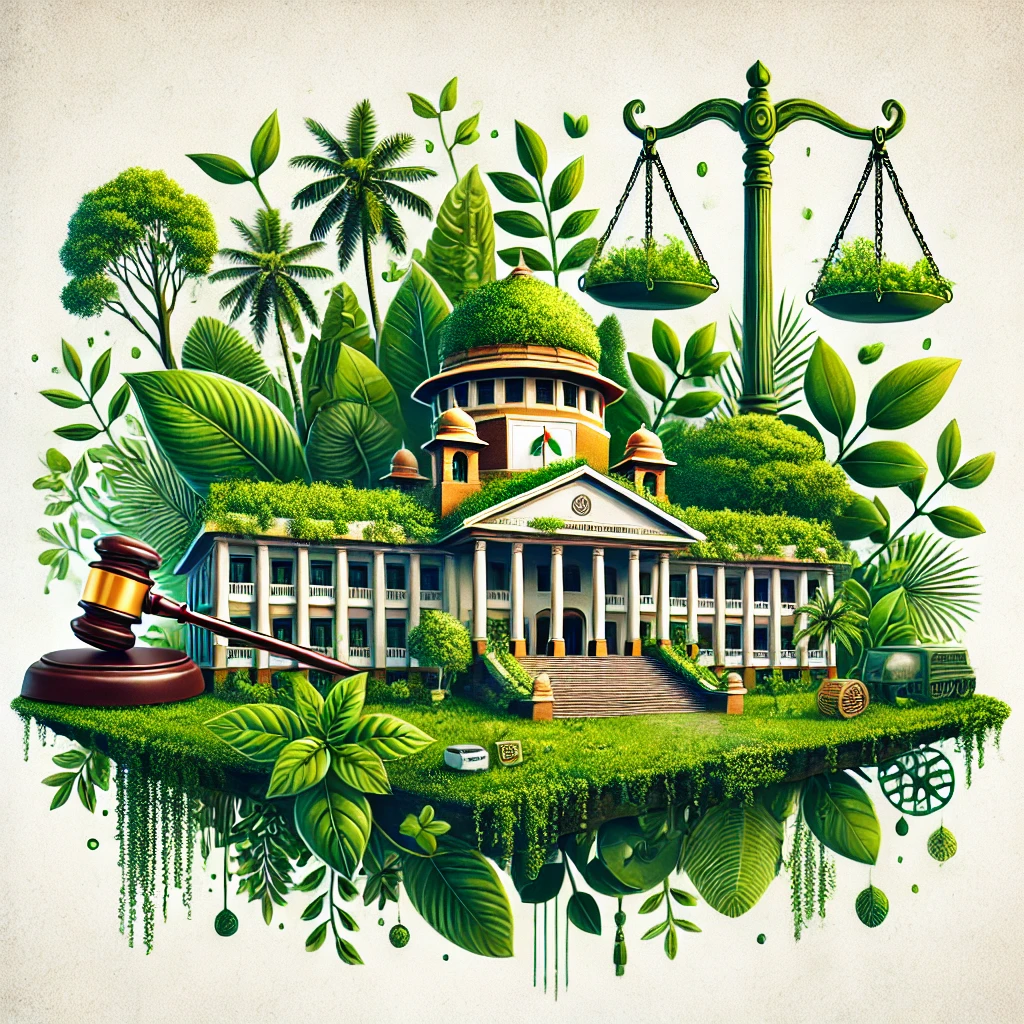Environmental laws at Italy
Italy has a comprehensive set of environmental laws designed to protect natural resources, promote sustainability, and address key environmental challenges. These laws are influenced by both national priorities and the European Union (EU) directives, as Italy is an EU member state. Below is an overview of key environmental laws and regulations in Italy:
1. Environmental Framework Law (Law No. 349/1986)
Purpose: This law is the cornerstone of Italy's environmental protection framework. It establishes the legal basis for environmental protection in the country and sets out the responsibilities of the government, regional and local authorities, and private individuals in environmental conservation.
Key Points: It created the Ministry of the Environment, which is responsible for environmental policy, and also established the Environmental Protection Agency (ISPRA) to monitor and enforce environmental regulations. The law emphasizes the need for sustainable development and environmental protection.
2. Environmental Impact Assessment (EIA) Law (Legislative Decree No. 152/2006 - Environmental Code)
Purpose: The Environmental Code (Codice dell'Ambiente) consolidates various environmental laws in Italy, including regulations on environmental impact assessments (EIA).
Key Points: The law requires an Environmental Impact Assessment for projects that may significantly affect the environment. It establishes a clear process for assessing potential environmental risks before the approval of certain types of projects, such as infrastructure and industrial developments.
Enforcement: The Ministry of Environment and regional authorities oversee the enforcement of these assessments.
3. Water Protection Law (Legislative Decree No. 152/2006 - Environmental Code)
Purpose: This part of the Environmental Code focuses on the protection of Italy’s water resources.
Key Points: It includes provisions on water quality, management, and usage, aligning with EU directives on water management. It regulates the protection of groundwater, lakes, rivers, and coastal waters. The law also sets water quality standards and requirements for wastewater treatment.
Enforcement: Regional and local authorities manage water resources and ensure compliance.
4. Waste Management Law (Legislative Decree No. 152/2006 - Environmental Code)
Purpose: This law regulates waste management in Italy and aims to reduce, reuse, and recycle waste materials.
Key Points: It covers the collection, treatment, and disposal of waste, including hazardous and non-hazardous waste. The law aligns with the EU's Waste Framework Directive and includes provisions for extended producer responsibility (EPR), encouraging manufacturers to take responsibility for the lifecycle of their products.
Enforcement: The Ministry of Environment and local authorities are responsible for the regulation and enforcement of waste management laws.
5. Air Quality Protection Law (Legislative Decree No. 152/2006 - Environmental Code)
Purpose: This law regulates air quality in Italy and sets limits for pollutants such as nitrogen oxides, sulfur dioxide, carbon monoxide, and particulate matter.
Key Points: The law incorporates EU directives on air quality and provides measures to reduce emissions from industrial activities, transportation, and other sources. It also promotes the use of clean energy and technologies to improve air quality.
Enforcement: The Ministry of Environment and regional authorities oversee the enforcement of air quality standards.
6. Nature Protection and Biodiversity Laws (Law No. 394/1991)
Purpose: The Nature Protection Law establishes the legal framework for the creation and management of Italy’s national parks and nature reserves.
Key Points: It provides for the protection of wildlife, forests, and natural landscapes. It also promotes sustainable use of natural resources and the preservation of biodiversity. The law is aligned with Italy’s commitments under the Convention on Biological Diversity and EU nature conservation laws (such as the Habitats Directive).
Enforcement: The Italian Ministry of the Environment and local authorities are responsible for the management and enforcement of nature protection laws.
7. Renewable Energy and Energy Efficiency Laws
Purpose: These laws promote the development of renewable energy sources and energy efficiency.
Key Points: Italy has introduced various incentives for renewable energy, including solar, wind, and biomass energy, under the Green Energy Decree and Conto Energia Program. The laws aim to reduce Italy’s reliance on fossil fuels and contribute to EU climate change goals. They also encourage energy efficiency measures in industries, buildings, and transportation.
Enforcement: The Ministry of Economic Development and the GSE (Energy Services Manager) oversee the implementation and regulation of energy-related laws.
8. Climate Change Law (National Energy and Climate Plan - NECP)
Purpose: The National Energy and Climate Plan outlines Italy’s approach to achieving its climate change commitments under the Paris Agreement and EU climate goals.
Key Points: It sets specific targets for reducing greenhouse gas emissions, increasing renewable energy share, and improving energy efficiency. Italy aims to meet the EU’s overall climate goals by reducing emissions and shifting to a green economy.
Enforcement: The Ministry of Environment, Ministry of Economic Development, and GSE play key roles in implementing and monitoring progress toward these targets.
9. Noise Pollution Control Law
Purpose: This law regulates the prevention and reduction of noise pollution in urban and industrial areas.
Key Points: It sets limits on noise levels for various environments, such as residential, industrial, and recreational areas, and imposes obligations on businesses to limit noise emissions. It also mandates noise abatement measures for construction sites, airports, and other high-noise activities.
Enforcement: Local authorities and the Ministry of Environment are responsible for enforcing noise pollution regulations.
10. Sustainable Agriculture and Forestry Laws
Purpose: Italy has laws that promote sustainable farming and forestry practices to protect soil, water, and biodiversity.
Key Points: These laws promote organic farming, reduce the use of pesticides and fertilizers, and encourage the preservation of forests. The Forest Code (Law No. 394/1991) governs the conservation and management of forests.
Enforcement: The Ministry of Agriculture, Food and Forestry manages and enforces these laws.
11. Land Use and Urban Planning Laws
Purpose: These laws regulate the use of land for development, ensuring that urban expansion does not come at the expense of environmental sustainability.
Key Points: They include provisions for zoning, protection of green spaces, and management of natural and agricultural land. Urban planning laws encourage sustainable development and the use of energy-efficient building techniques.
Enforcement: Regional and local planning authorities manage land-use laws and zoning.
Key Enforcement Agencies:
Ministry of Environment and Energy (Ministero dell'Ambiente e della Tutela del Territorio e del Mare): Responsible for national environmental policy and enforcement.
ISPRA (Istituto Superiore per la Protezione e la Ricerca Ambientale): The Institute for Environmental Protection and Research, which monitors and enforces environmental standards.
Regional and Local Authorities: Regional and municipal governments play a significant role in implementing and enforcing environmental laws at the local level.
ARPA (Agenzia Regionale per la Protezione dell'Ambiente): Regional environmental protection agencies that monitor air, water, and soil quality.
EU Influence:
As a member state of the European Union, Italy is bound by EU environmental laws, including directives related to air quality, water quality, waste management, biodiversity protection, and climate change. Many of Italy’s national environmental laws are aligned with or directly implement EU regulations.
Environmental Challenges in Italy:
Despite the extensive environmental legal framework, Italy faces challenges such as air pollution, waste management issues, water scarcity, and land degradation. The government continues to strengthen its environmental policies to address these challenges and comply with EU and international commitments.
In summary, Italy’s environmental laws cover a wide range of areas from air and water protection to biodiversity, energy efficiency, and climate change. These laws are increasingly aligned with EU standards and aim to protect Italy’s rich natural heritage while promoting sustainable development and reducing environmental impacts.












comments